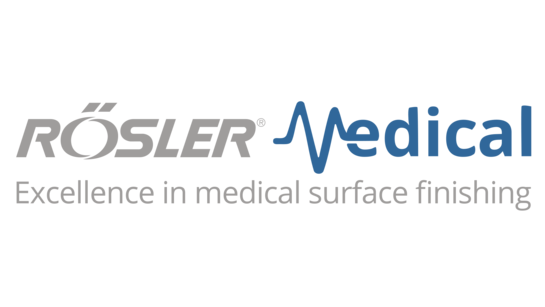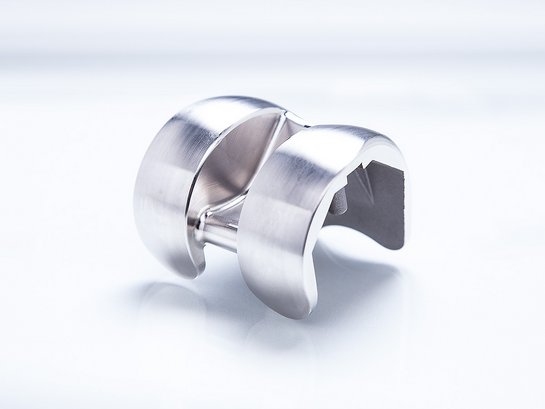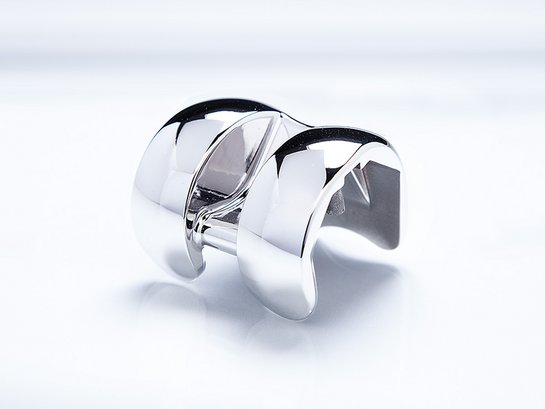Surface Treatment for Medical Technology

In medical technology, good is simply not good enough. Prostheses, orthoses, implants, and medical devices must be perfect and meet the highest regulatory standards. According to the German Medical Technology Association, these devices should "save lives, support healing, and improve the quality of people's lives."
Especially when it comes to surface treatment, the industry is in urgent need of innovative solutions because medical devices are often still smoothed, ground, and polished manually. Due to the sensitive areas of application on and in the human body, there are strict requirements for surface quality and accuracy of fit. Demand is continually growing and cannot be met without intelligent, automated, and economical solutions.
Meeting the Highest Demands: Reliability from the World Market Leader


For many years, we have been offering our customers reliable and high-quality systems that eliminate the need for manual polishing and smoothing, leading to significant cost and time savings.
Reproducibility, corrosion resistance, and absolute reliability in terms of quality are indispensable properties for surgical instruments, drill heads, turned and milled parts, and scalpel blades. Because these items are used directly on the human body, they must provide outstanding safety and reliability. For example, no metal residue should be able to enter the wound, and no bone cells should be unnecessarily damaged. With our mass finishing and shot blasting systems, you can achieve the required quality reliably and easily.
The requirements for medical technology products in orthopedics are even higher. Total hip endoprostheses (hip TEPs), which consist of the femoral head, acetabulum, and hip stem, must have a smooth and homogeneous surface and be 100% biocompatible. The requirements for the hip stem are particularly high at the transition from the cone to the stem due to the significant demands placed on strength.
The same applies to the femoral and tibial components of an artificial knee joint. Here, the demands on the surface are even higher than in the hip joint. Rösler provides the optimal surface treatment to meet these needs, thereby ensuring high-quality yet cost-efficient implants that fulfill the stringent abrasion and strength requirements within the human body.
"Our innovative automated solutions eliminate the need for manual work.”

In addition to the reliable solutions, we have been continually developing for decades, we have made a name for ourselves with innovations and new machining processes for medical technology. One example of such an innovation is the fully automated 'box finishing,' which involves the smoothing of the internal and extremely hard-to-access joint boxes in knee implants.
Thanks to the Rösler Surf Finisher technology, this machining process - i.e., the edge rounding, smoothing, and polishing of knee implants, including the hard-to-access joint boxes—can now be fully automated. Rotating work spindles allow the implants to oscillate and rotate in the work bowl, enabling the process medium to flow through the hard-to-reach areas in a targeted manner and ensure the uniform and controlled removal of material. This enables us to achieve fast, cost-effective, and completely reproducible machining results in an area that once relied on manual work.

Our systems are fully digitalized and feature a high degree of automation. This makes it easier for our customers to provide the traceable documentation required in the industry and supports them in implementing and validating their processes. We also guarantee the reproducibility of surface treatment through our own mass finishing media and compound development as well as production. All consumables for the medical technology sector are carefully manufactured to the highest quality standards.
"Homogeneous, smooth surfaces without sharp edges or machining marks are achieved thanks to our mass finishing processes.”

Workpieces that react sensitively to external mechanical loads—such as contact with each other during processing or high forces from overly intensive processing parameters—due to their weight or complex and delicate structure, can be perfectly processed with our Rösler drag finisher or the multi-surf finisher.
These systems are particularly used for high gloss polishing in the orthopedic sector, where they ensure a perfect surface finish with absolute reproducibility, even in highly sensitive areas, thanks to the optimally coordinated interaction between the machine and process equipment. The sophisticated system technology enables simple workpiece handling.
Less sensitive workpieces, such as bone plates, bone screws, and surgical instruments, can also be ground in batch systems like tub vibrators and rotary vibrators. This is a cost-effective yet highly flexible type of processing. For fast processing of small parts such as dental implants, bone screws, and stents, centrifugal systems are particularly suitable. These systems ensure that workpieces are processed up to 15 times faster than conventional mass finishing systems or guarantee perfect smoothing and polishing of 3D printed cranial implants.
"Matte surfaces and increased resistance thanks to our shot blasting technology.”

Shot blasting systems are also ideal for the surface treatment of medical technology components. For example, they are used for matting surgical instruments, which must not reflect when used in the operating theater, or for tibia implants, which should have a homogeneous and silk-matte surface in certain areas. These components are blasted in compressed air wet blasting systems, among other methods. Additionally, shot peening technology is used in medical technology to ensure greater resistance in titanium bone screws.
"Whether titanium, cobalt-chrome, or ceramic, we have the right process.”

The most stringent requirements in medical technology continue to present the industry with new challenges and demand constant further development of products and machining processes. One focus of the industry is on the materials used. We support this trend and are continually perfecting our systems and process equipment. For example, we develop abrasive media and compounds that enable the automated, mirror-smooth machining of workpieces made of cobalt-chrome, titanium, and ceramics.
The rapid development of additive manufacturing in medical technology is an enormous opportunity for the industry, particularly in the trauma sector. Skull plates are already being produced on 3D printers according to individual measurements. Knee joints or spinal joints can also be produced this way. However, these workpieces pose completely different challenges for surface processing. After compression, they have a much higher degree of roughness than milled components. Here too, mass finishing and shot blasting technology specially adapted to these requirements offer excellent solutions for the daily challenges of the industry at all processing stages. These technologies ensure surface quality, efficiency, and cost-effectiveness through optimally coordinated post processing.
